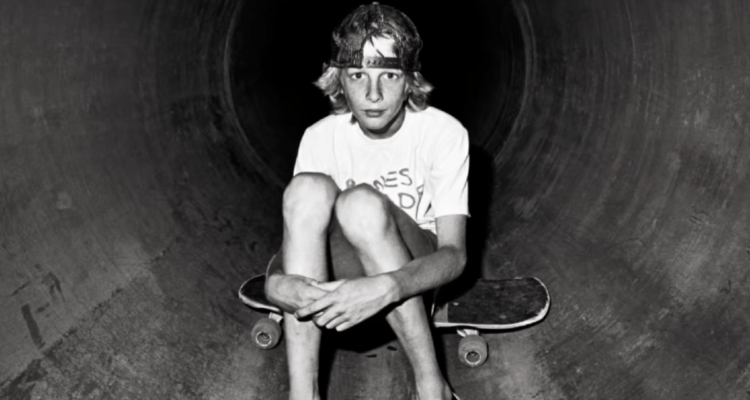For the skateboarding illiterate, there is perhaps no more famous name than Tony Hawk. Even those who cannot differentiate a kickflip from a heelflip can probably tell you something about the most popular skateboarder of all time: the video games that bear his name, his appearances in “Jackass,” or even his 900 at the 1999 X-Games. No one has done more to bring the skateboarding community into the mainstream than Hawk. It’s a bit surprising, then, that it has taken so long for Hawk to get his own hagiographic documentary, courtesy of Sam Jones’s “Tony Hawk: Until the Wheels Fall Off.”
READ MORE: 2022 SXSW Film Festival: 15 Must-See Film & TV Projects
Routine, but never less than engaging, Jones’s film essentially follows Hawk’s personal and professional life from birth to the present. Made up of archival footage and interviews with Hawk and various other skaters, “Until the Wheels Fall Off” may not, no pun intended, reinvent the wheel of sports documentaries. But it’s a compelling dive into skateboarding culture from 1980 onwards and helps to illustrate just how important Hawk was to legitimize the sport. As discussed by various other contemporary skaters, Hawk was a phenom from the point he picked up a board in his early teens; his preternatural ability to perfect near-impossible tricks led him to a record number of competition wins by the time he had graduated high school.
Most of those voices come from the infamous Bones Brigade, a skateboarding team founded by Z-Boys legend Stacy Peralta. Besides Hawk, Peralta’s voice is dominant in the film, helping to contextualize the importance of Hawk’s skateboarding style. For anyone who has seen Peralta’s documentary “Dogtown and Z-Boys,” his presence here isn’t exactly surprising, as no one has done more to document and historicize the ebbs and flows of skateboarding than him.
The other significant presence is Hawk’s friend — and fellow Brigade member — Rodney Mullen. Known more as a freestyle or street skater, Mullen is every bit the poet-artist that his esoteric skating style suggests. As Mullen notes, his friendship with Hawk was built around competing skate-styles. Hawk favored vert skating, keeping them out of competition with each other but nevertheless on similar professional trajectories.
If the first half of Jones’s documentary zooms through Hawk’s historic rise in the California skate scene and his rivalries against Christian Hosoi and Duane Peters, the second half settles down to explore the cultural influence of Hawk. Touching on everything from his eponymous video games to his increased tunnel vision when it came to mastering tricks, all of Hawk’s most important moments — the 540 McTwist, the 900, the Downward Spiral Loop, etc. — are given considerable time and explanation.
While his professional career is given ample context, Jones races past the less savory parts of Hawk’s personal life, only briefly touching on his four wives and his time spent partying — mainly taking place during the height of his Boom Boom HuckJam tour in the early 2000s. While Hawk is generally self-effacing, honest, and admits that fame is the “worst drug,” we never get a sense of his life outside of skateboarding. His first son, the skateboarder Riley Hawk, shows up briefly to hint at his troubled childhood, but “Until the Wheels Fall Off” isn’t that type of expose.
Instead, what becomes incredibly clear is Hawk’s work ethic and how skateboarding seemingly clarifies everything else in his life. His nine previous attempts at the ‘99 X-Games to land a 900 are shown in almost real-time, showcasing the increased frustration and fixation with each failed attempt. When he finally does land the mythical trick, he shows more of a sense of relief than anything resembling pride.
Such an all-encompassing approach limits “Tony Hawk: Until the Wheels Fall Off,” as two hours is perhaps not enough time to cover Hawk’s entire life. One gets the sense that Jones is only scratching the surface of Hawk’s professional career. Despite this, the documentary is a fascinating introduction to Hawk and skateboarding more generally. [B]
Follow along for our complete coverage from the 2022 SXSW Film Festival.

